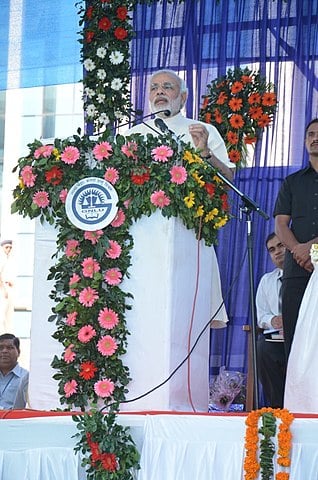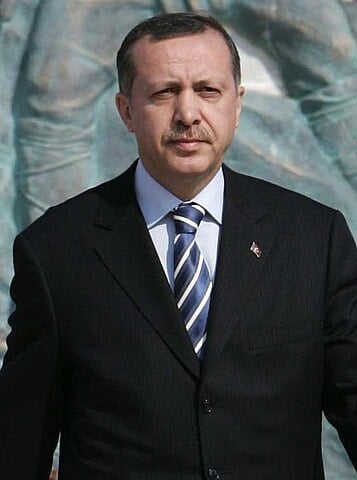From witnessing a shift from a unipolar world to a multipolar world and observing ever-increasing support for populist leaders, the 21st century is undoubtedly full of surprises.
The word “populism” is derived from the Latin word “populous,” which refers to the “people.” Populism means the rise of demagogues—a right-wing leader who knows how to convince people. He attracts the common people by assuring them that he is one of them, unlike the political elites, thus making him a charismatic personality among the general masses. These rulers are usually known as hardcore anti-establishment; therefore, this term is often taken in a pejorative sense. The comeback of Trump in this year’s US presidential elections raises a significant discourse on “Is populist support back?”
Numerous populist leaders across the globe are rising in their respective political landscapes. In contrast, many populist leaders have marked their presence in politics, and due to their rising popularity, the establishment has had to shut them down. Following are the profiles of a few prominent populist leaders whose rise the world has viewed.
1. Donald Trump
The epitome of populism is nothing but Donald Trump. Everyone knows him as a popular populist ruler and a well-versed demagogue. He is a self-proclaimed “people’s leader,” and one of the primary traits of populism is for the leader to think he is the only savior of the people. His comeback in the 2024 elections shows his rising support in American politics. He has used several populist tools to attract the general masses. He has always played the card of “us vs them” while denouncing the high governmental institutions by constantly referring to them as “deep states.”

Moreover, he is famous for not respecting political institutions. Many times, he has criticized the judiciary by calling the Obama-appointed judges “Obama judges.” Slurs like this instigate people to treat these institutions like their leaders do. On January 6, 2021, when he lost the elections, his supporters attacked Capitol Hill because he instigated them and made them think that the democratic party had stolen their votes. Similarly, in 2016, he used the same populist tactic and called Hillary Clinton “mentally unstable” and “not fit to run for the presidency.” Reprehension is a prominent feature of populist leaders, and Trump has used it several times.
2. Narendra Modi
Narendra Modi is another leader famous for his populist traits and demagogic behavior. He has always called himself someone from a humble background, from being a tea seller at a railway station to becoming a prime minister.

His claim of being a tea seller has always attracted him to the common people. Modi’s second re-appointment as the Prime Minister of India has raised a serious discourse on the deep penetration of populism in India. After much criticism and human rights violations, his comeback shows that populism is a reality, and if you know how to play this card, you can get away with any grave violation. Media has always been an instrumental tool for populist leaders. Modi has made full use of social media to connect with the people. In 2014, his intense use of media to mobilize the masses gave birth to a new form of populism known as “high-tech populism.” He has dedicated himself to promoting Hindutva policies to attract people. He knows hardcore Indians hate Muslims; thus, he always uses his anti-Muslim rhetoric to activate the masses.
3. Tayyip Erdogan
Recep Tayyip Erdogan has been the most popular leader in the Islamic world. He is known as an Islamic world populist because of his Islamic rhetoric style and how he plays the anti-western card. He is very famous for using Islam as a tool in his speech to attract the majority of Muslim masses in Turkey. Offering election prayer before the night of the election is a tradition Erdogan follows. Ottoman leaders inspire this tradition. They used to pray before sending their men to war. By performing these rituals, he is clearing and attracting the masses by merging the lines between politics and religion. With the help of the religion-politico approach, he won the election for the third time.

4. Zulfiqar Ali Bhutto
If we look at our national examples, one of the significant populist prime ministers that comes to our mind is Zulfiqar Ali Bhutto. Bhutto has a solid charismatic personality that is known to be an essential trait of populist leaders. He knew how to make people convinced. Due to his populist personality, he started the chants of “roti, kapra, or makaan” to attract the masses, and he was massively successful in it. After every few days, he has a ritual to connect with the people directly through radio. He has always used strong statements that activate emotionality in people. In one of his addresses, he said, “There are two Zulfikar Ali Bhuttos, me and the one who is in each of you!” Due to his charged, somewhat emotional addresses like these, common people attracted him.
5. Imran Khan
You cannot discuss populism without mentioning the most famous Imran Khan as an emerging populist leader. The world has witnessed his rise and how people got attached to him; when he faced a no-confidence motion, the whole world came out on the streets, whether in Pakistan, the UK, or the USA, and everyone demanded justice. Many people address him as a significant source of conflict and dissent in Pakistan; for some, he has educated them about politics and their rights. Khan has always been a strong critic of the military, and because of his constant anti-establishment rhetoric, people have become agitated towards the army. He has always called out the political elites and dynastic politics like PML (N) and PPP. His creation of Shaukat Khanum is also another point of discussion that people usually use to call him a savior of Pakistan. He has also used the word “Riyasat-e-Medina” multiple times to show people that he wants to make Pakistan a welfare state like Medina and wants to bring Islamic values back to Pakistan. Undoubtedly, Khan is a populist leader with excellent oracle skills. When he speaks, people listen to what he has to say. With his charismatic traits, he has admired a lot of people across the globe.
All the examples mentioned earlier have one thing in common: each populist leader has a strong, charismatic personality with excellent debating skills. They know how to convince people and make them believe they are one of them. In addition, all of them more or less have the same rhetoric that revolves around anti-establishment, anti-elite, and religion. With the help of these political tools, they have always become successful and famous around the globe. Not only that, these tactics have also helped them to gain positions of power. Populism is not a new phenomenon, and populist leaders are not born in a night. Their populist traits have been ingrained in them since the beginning, making them unique and different from the rest of the politicians.
If you want to submit your articles and/or research papers, please check the Submissions page.
The views and opinions expressed in this article/paper are the author’s own and do not necessarily reflect the editorial position of Paradigm Shift.
Minahil Baig is currently pursuing her master's degree in Peace and Conflict Studies from NUST. Her areas of interest include conflict management, defence studies, artificial intelligence, and modern warfare.


